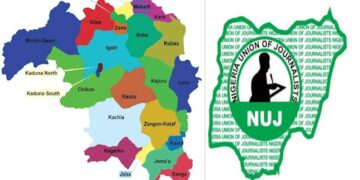The International Monetary Fund (IMF) has announced the measures it would take to improve Nigeria’s ability to administer its newly minted Central Bank Digital Currency, the eNaira, successfully.
The Bretton Woods Institution has stated that it will endeavor to assist the government with technical assistance and policy guidance.
This information is given in a report by Jack Ree, an economist in the IMF’s African Department, titled “Country Focus; Five Observations on Nigeria’s Central Bank Digital Currency.”
The IMF stated in the report that it was participating in the eNaira deployment process, including providing product design reviews.
What the IMF has to say
The IMF stated that it is willing to engage with the authorities on data analysis, cross-country studies, sharing the eNaira experience with other nations and debating the digital currency’s future evolution, which includes design, legal framework, and other factors.
“The IMF remains available to assist with technical assistance and policy advice,” according to the report. The International Monetary Fund’s Monetary and Capital Markets Department has been involved in the eNaira implementation process, including offering product design reviews. The IMF’s Article IV mission in 2021 stressed the importance of monitoring the risks and macro-financial implications of a central bank’s digital currency.
“The IMF is willing to cooperate with the authorities on data analysis, cross-country studies, sharing the eNaira experience with other countries, and discussing the eNaira’s future evolution, including its design, regulatory framework, and other features,” says the IMF.
What you need to know
On October 25, 2021, President Muhammadu Buhari officially unveiled Nigeria’s digital currency, the eNaira, claiming that it would increase Nigeria’s GDP by $29 billion over the next ten years.
Nigeria became the first African country and one of the first in the world to introduce a digital currency to its citizens, joining China, the Bahamas, and Cambodia.
The eNaira’s new payment system, which has taken four years to establish, will drive access to financial services, serve as a backbone for electronic payments in Nigeria, increase remittances, improve cross-border trade, and allow more people to move from the informal to the formal sectors, thereby increasing the country’s tax base.
However, the IMF has warned that Nigeria’s digital currency poses risks to monetary policy implementation, cyber security, operational resilience, and financial integrity and stability because the eNaira wallet may reduce demand for deposits in commercial banks.
LIKE & FOLLOW US ON FACEBOOK & TWITTER





































